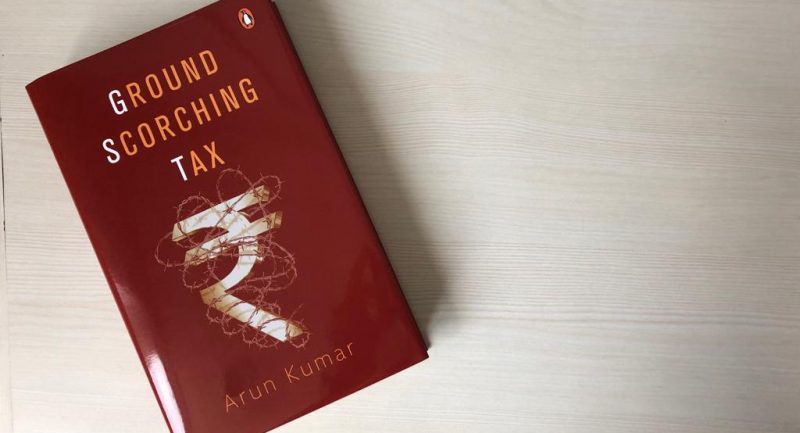
There is no doubt that Ruskin Bond is one of India’s most beloved writers. At least three generations have grown up reveling in the exquisite simplicity of his writing and aspiring to the carefree childhood among the hills, to the tales that he weaves with all the soft, natural magic of the mountains themselves.
All his stories, fiction and non-fiction, have such tantalizing hints of autobiography that many of us have often wondered as to the sources of his characters-those ordinary people with the very slight idiosyncrasies that he has elevated beyond the mundane to a magical place in his readers memories. And just like reading a Ruskin Bond book takes his readers go back to a place in their mind unique to their own reminiscence, The Beauty of All My Days is no ordinary chronological autobiography but a piecing together, a remembrance of things past, an aggregation of the incidents, friends, books and movies that have shaped him to become the person he is.
Read on for six untold stories that give us a glimpse into Ruskin Bond’s life
When his first moment of literary glory funded a party for a crew that sounds like the gang from A Room on the Roof
“And then I sold a story to The Illustrated Weekly of India, the country’s premier English magazine, editedby C.R. Mandy. It was a trifle, a school story or skit called ‘My Calling’, but it brought me fifty rupees, a princely fee in those far-off days (August 1951). I gave a party for my friends—Somi, Chottu, Haripal, Kishen, Ranbir and Co.—and declared myself to be a fully established writer, although it would be several months before I sold another story!”
The elusive woman who features in different forms in so many of his stories
“Maplewood. I take Sushila and her cousin down to the stream. We’ll picnic near running water, I tell them. Down comes the rain! It comes rushing down the hill—running water everywhere! We run for it, run for home. Get home drenched. Sushila, beautiful with her hair dripping and her blouse clinging to her slender figure.”
The first venue for his literary output seems a combination of Virginia Woolf’s A Room of One’s Own and Gerald Durrell’s My Family And other Animals!
“My first real writing room was that tiny room on the roof, a barsati on top of a rambling old building in Dehradun, which had once been the Gresham Hotel and later the Station Canteen and was now occupied by various tenants, among them my mother and stepfather and my three small brothers and sister, not forgetting an Alsatian and a dachshund.”
The hotel from hell that he inhabited as a broke teenager en route to London
“Ah! Lamington Road . . . Sometimes I see you again in my dreams, or rather my nightmares, for youand your seedy little hotel were indeed a nightmare for a pimply seventeen-year-old without friends ormoney. They gave me a small bare room with a rickety chair and table and a bed made of wooden slatscovered with a lumpy mattress. There was no window, not even a skylight. The toilet served several rooms. This wouldn’t have mattered, but within an hour of taking up residence I was making frequent trips to the lavatory.”
The great escape from school that is referenced in the evocative story The Playing Fields of Shimla’
“‘I think it was Brian, searching for a cricket ball, who discovered the tunnel…The great escape! It hadn’t taken us anywhere, really, but to be outside the school instead of inside, made a lot of difference to us from a psychological viewpoint. That feeling of being hemmed in was no longer there. We returned to our dormitories the conventional way—through the open school gate—but we had broken bounds, and that made us feel special.’”
A steady diet of MGM musicals
“I was paid about £12, a useful amount, and I had planned to spend it on clothes, but just then a number of big musical shows were running in London’s theatres, and all my spare money went on seeing them. Paint Your Wagon, Guys and Dolls, Pal Joey and others. And having grown up on a rich fare of Hollywood musicals, I couldn’t resist going to see these stage performances; but they did eat into my income.”
There, but for the grace of God, go I, his fear at almost having become one of the ‘lost boys’
“There were many Fishers and Spreads ‘left behind’ across the country, left to fend for themselves, forthere was no godfather or fairy godmother on hand to support them. And they come to mind while I am writing this memoir because they remind me of how close I came to being one of them. I was luckyin that I had a small talent, a talent with words.”
Each chapter of this memoir is a remembrance of times past, an attempt to resurrect a person or a period or an episode, a reflection on the unpredictability of life. For more posts like this, follow Penguin India on Facebook!









